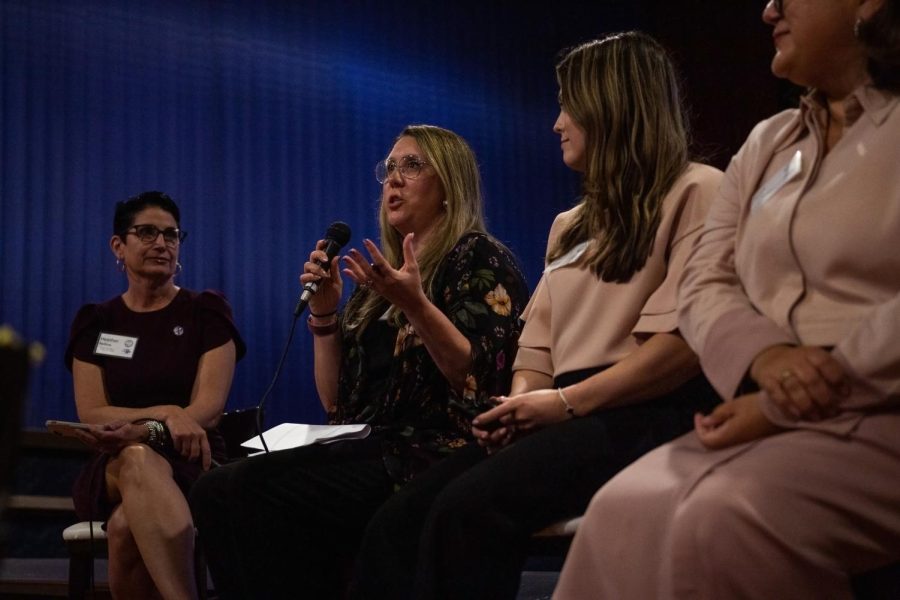Sexual abuse advocates gather to discuss trauma and victims’ rights at film screening
April 27, 2022
Content Warning: This story contains discussion of sexual violence and abuse.
The Texas Advocacy Project hosted a showing of the documentary “CUSP,” spotlighting the effects of sexual violence, followed by a panel discussing sexual abuse with a UT faculty member in North Austin on Wednesday.
Television network Showtime released CUSP in November 2021, which is a story that follows Texan teenagers Brittney, Aaloni and Autumn as they struggle with their childhood traumas while navigating friendships and romantic relationships. The Texas Advocacy Project is a non-profit organization that works toward ending dating and domestic violence and hosted the showing at Galaxy Austin Luxury Theater.
After the screening, four expert panelists who work in domestic violence and sexual abuse prevention and support took to the stage to talk about the effects of these traumas and events.
Caitlin Sulley, panelist and director of research and operations at the Steve Hicks School of Social Work’s Institute on Domestic Violence & Sexual Assault, said one in three Texans experience domestic violence at some point in their lives.
“From a social work lens … we’re looking at not just that individual and their relationships and their family dynamics,” Sulley said. “We also have to look at the work that we do in the community, in schools, in the workplace and then the influence of culture, of society, of policies.”
Victims’ rights advocate Abbie Hillis talked about her personal experience with sexual abuse and assault during the panel. She said it is important to normalize conversations around sexual abuse from an early age in order to create a sense of comfort and community for survivors.
“Trying to help starting at the teenage years and teaching and empowering the women that you know, giving them their education on that you do have ownership, you do have rights. I don’t think there’s really much of a conversation at all,” said Hillis. “I love this documentary because I feel like it’s a good way to bridge the gap between the parents and the adults and the teenagers or young adults.”
Hillis said strong communities of support like the friendship between the girls in the documentary are often built during times of hardship, such as those created by abuse.
“The best thing that can come out of trauma, as crappy as it is, is the resilience and the empowerment because there’s a lot of factors that can come out of it,” Hillis said.
Riya Gantla, biology and health and society freshman who is interning for the Texas Advocacy Project, said the event showed how prevalent sexual abuse issues are in society.
“(The panelists) were talking a lot about how younger generations bring hope,” Gantla said. “That is something we as UT students can use our platform (for) … to work on creating change.”












